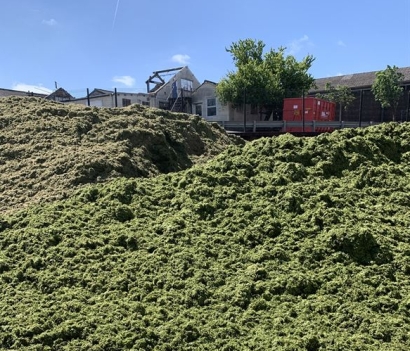
When operational in 2023, this will be the first Green Gas Mill in the U.K, making an important step towards creating a green economy. The proven technology process works with grass that has been broken down in a silage container for approximately two months. It is then put into a digester, where it gives off a methane-rich gas to be fed into the domestic gas network. The Wärtsilä biogas upgrading plant refines the gas before it is sent to the grid.
“Replacing fossil fuels with grass-fed gas provides significant green energy benefits. Importantly, existing gas boilers installed in homes all around Britain can still be used, but in a much more sustainable way. Wärtsilä has a strong track-record in delivering highly efficient biogas upgrading solutions, and their Puregas system is a key element of this project,” commented Chris Ives of Paul Winter Consulting Ltd, the Consulting Engineer appointed by Ecotricity to manage this project.
“As a company committed to helping decarbonise the industries we serve, we are delighted to be involved in this exciting green energy project. In addition to its technology advantages, our Puregas CA50 biogas upgrading plant provides the customer with the lowest total cost of ownership, which is central to our product development,” said Steven Scott, Sales Manager, Biogas Solutions, Wärtsilä Gas Solutions
Green grass is carbon neutral in that the CO2 it absorbs whilst growing is released back into the atmosphere when the methane is burned. Fossil gas, by comparison, releases CO2 that is not in the atmosphere now, meaning that it is a net addition to atmospheric CO2.
Ecotricity plans to build many more Green Gas Mills in the future. The company calculates that 3000 installations would provide enough gas to fuel all 22 million homes that are currently on Britain’s gas grid.

